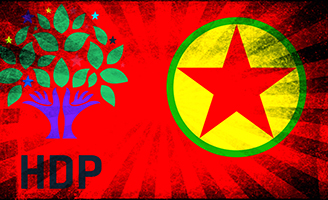Turkey Is Not Going to Be “Normalized” Under the AKP’s leadership
By Toni Alaranta (vol. 8, no. 14 of the Turkey Analyst)
There is widespread expectation that “normalization” and democratic consolidation will follow the June 7 election, which deprived the ruling Justice and Development Party (AKP) of its majority. The talk about “normalization” and President Recep Tayyip Erdoğan becoming “isolated” presupposes that Turkey’s democratic travails emanate exclusively from Erdoğan’s power hunger, and that once this factor is eliminated, the AKP will once again become the “normalizing force” it allegedly was previously. However, “normalization” would mean abandoning not only Erdoğan but the very political narrative disseminated by the AKP during its years in power, and thus the mission of the party.
The Case for a Coalition with the CHP: the AKP Needs to Refurbish Its Image in the West
By Halil Karaveli (vol. 8, no. 14 of the Turkey Analyst)
The AKP’s loss of its absolute majority in the June 7 parliamentary election may paradoxically offer the regime the chance to refurbish its tarnished image in the West. That, at least, is how some of the leading representatives of the regime judge the present situation. A coalition government with the center-left CHP is perceived as a chance for the AKP to rid itself of the charges of authoritarianism. Western endorsement has always been critically important for AKP, and the party is desperate to regain its lost legitimacy in the West. The question, though, is why the CHP would even contemplate lending itself to a project that would only entrench the AKP regime.

Turkey’s Kurds and the Post-election Political Landscape
By Gareth Jenkins (vol. 8, no. 13 of the Turkey Analyst)
The Turkish general election of 7 June stripped the ruling Justice and Development Party (AKP) of its parliamentary majority for the first time since November 2002 and dealt a devastating blow to President Recep Tayyip Erdoğan’s hopes of replacing the country’s parliamentary system with an autocratic presidential one in which all political power was concentrated in his own hands. But, even though the election was an undoubted triumph for the pro-Kurdish Peoples’ Democratic Party (HDP), it has also left the Kurdish nationalist movement facing a number of challenges.

Turkish Democracy Is Not Out of the Woods
By Halil Karaveli (vol. 8, no. 12 of the Turkey Analyst)
The immediate effects of Turkey’s June 7 election was that the ruling Justice and Development party (AKP) lost its majority and President Erdoğan was forced to put his plans for a presidential system on hold, at least for the moment. Yet the prospects for Turkish democracy are not necessarily any brighter today. The most likely outcome is a coalition between the AKP and the rightist Nationalist Action Party (MHP). That is the preferred outcome for “conservative” business interests, who challenge “secular” business interests and want to continue to use state power to get their hands on a bigger share of capital. Their interests ensure that the AKP will remain on its confrontational track; that is the principal dynamic behind Turkey’s drift toward authoritarian rule, and it is far from having been halted.

The Kurdish Surge in Turkey’s Election: A Boost in Backing for the PKK
By Aliza Marcus (vol. 8, no. 12 of the Turkey Analyst)
Kurdish voters abandoned the ruling AKP in Turkey's national elections, propelling the Kurdish HDP into parliament and giving Kurdish nationalist demands a new legitimacy. Earlier, critics could argue the PKK did not really represent the majority of Kurds in Turkey, but that argument is getting weaker by the day. The HDP's win can be ascribed, in large part, to a boost in backing for the PKK. The question is whether the parties and people who want more rights and freedoms will realize that Kurdish rights, autonomy and likely freedom for Abdullah Öcalan must be part of this to truly make Turkey into a liberal place.





